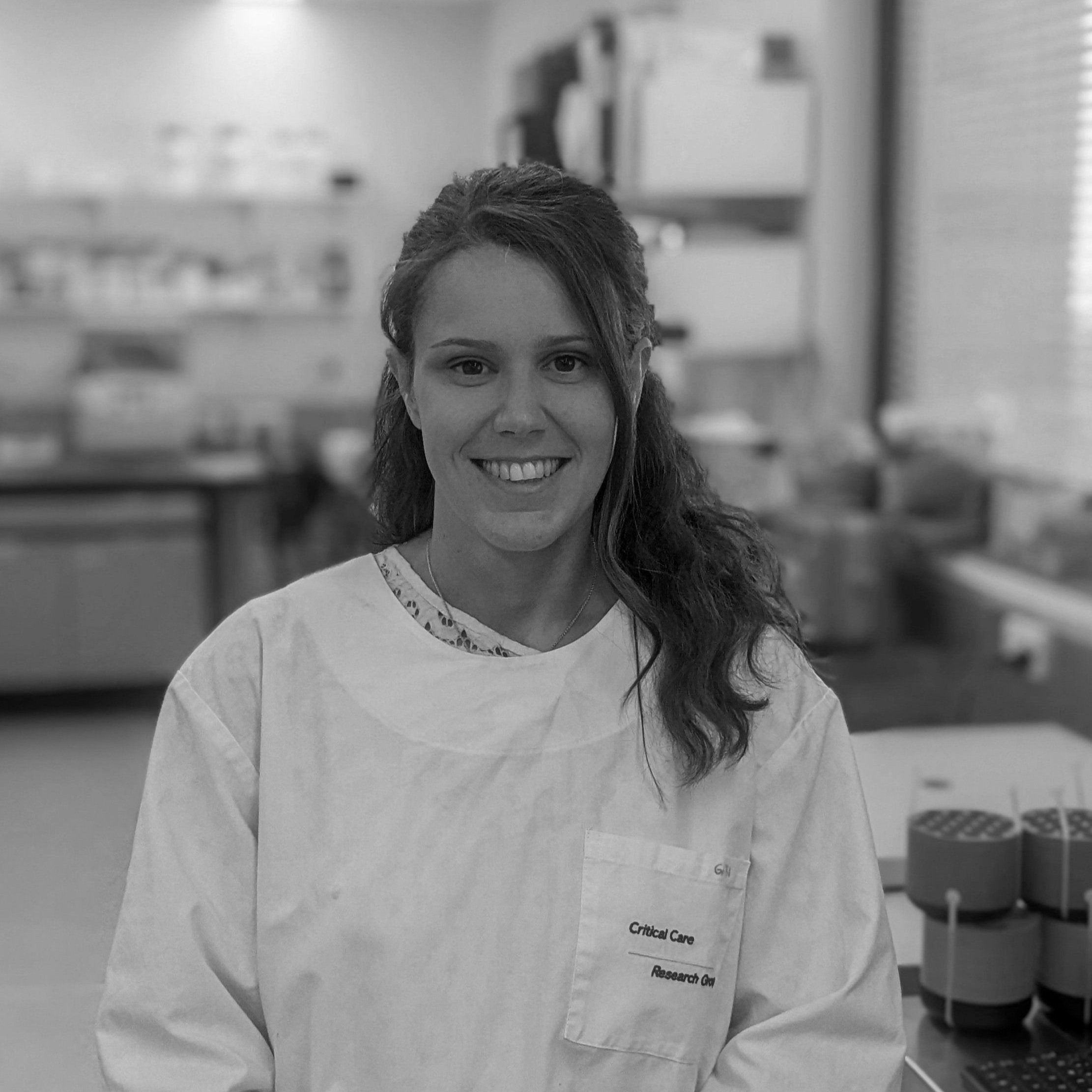Why a career in critical care research?
We recently sat down with Clinical Research Nurse Gabriella Abbate to learn more about what it’s like behind the scenes in the largest preclinical ICU in the southern hemisphere and what she find most rewarding about critical care research.
CCRG Lead Clinical Research Nurse Gabrielle Abbate (Italy)
Where were you working before joining the Critical Care Research Group?
Before I joined the Group I was working as a scrub nurse, providing patient care in the operating room at the Policlinico Hospital in Milan. I worked there for 13 years and gained a lot of experience, but I was ready for a new challenge. I first moved from Italy, then to Spain and then to Australia where CCRG is headquartered. The move was difficult at times, but I’m glad that I made the move, I am really enjoying being part of this group.
What is your primary role at CCRG, what does a typical day look like?
I’m responsible for coordinating the preclinical experiments we conduct through PRIMELab at Medical Engineering Research Facility (MERF). I’m responsible for setting up the lab, supervising technicians, and our visiting research fellows, arranging maintenance for equipment and supplies, and monitoring the accuracy of the data collected during the study.
With my previous experience as a scrub nurse, I play an essential role in The Living Heart Project, our study focusing on extending ischemic time for donor hearts, as well as several other studies related to thoracic, vascular, and neuro-surgery. I’m able to lend my experience to ensure these complex procedures are carried out safely and efficiently, and that’s extremely rewarding.
Critical care research is incredibly important as it is directly related to improving treatment outcomes and improving the quality of patient’s lives after critical illness. Our research is primarily concerned with understanding illnesses and diseases, pathing the way for more effective treatments and protocols. Our research helps to identify new and emerging risks, allowing healthcare providers to stay ahead of potential threats.
What projects are you currently working on?
I’m currently leading an industry-sponsored study to develop and test wearable devices for continuous measurement of interstitial troponin. I developed the study protocol and will lead preclinical experiments last this year. Additionally, I’ve just completed writing the manuscript for the in vitro study on esophageal pressure measurement.
In your opinion, what is the greatest recent development in critical care?
Through our preclinical work on The Living Heart Project, we’ve been able to demonstrate that the ischemic time of a donor heart can be extended to 8 hours. This is really exciting, and to see our preclinical work translated to clinical studies and 36 heart transplants successfully completed… it’s so rewarding and a really proud moment for the team and me.
What impact will your work at CCRG have on the lives of critically ill patients?
By conducting research and providing education and resources, we’re making a difference in the lives of critically ill patients and supporting their caregivers. We’re dedicated to helping improve treatment outcomes to allow patients live longer, healthier lives. We’re making a real difference in this area and I’m proud to be a part of that.
“If you are wanting to progress your career in medical research, and looking for a reliable and supportive team, I would encourage you to consider CCRG. Our team of experienced researchers, scientists, and clinicians have a proven track record in delivering quality research in the critical care field. With our expertise in this area, we provide a multifaceted approach to complex research questions. From designing and conducting studies to analysing and reporting data, CCRG has the skilled personnel and the right resources to fully support your research journey.”
There’s more to discover…
CCRG Fellowship programme now open
Learn more about unique ways to advance your research career with the Critical Care Research Group. From Estonia to Kenya, Italy to Japan, our Fellows come from all corners of the globe with enthusiasm, dedication, and integrity as we look at ways to advance clinical understanding of critical illness.
Interested in joining us? Read more and apply below.





